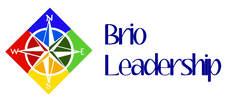 During my morning hike today, I was approached by a woman walking in the opposite direction. She animatedly gestured and warned me, “There is a dangerous snake in the drainage ditch up ahead of you. Be sure to go around the standing water and avoid the snake!” I walked on ahead and came to the standing water. As I walked around it, my eyes were glued to the drainage ditch, scanning the water. I walked to the end of the water but didn’t see a snake. Then, I noticed a slight movement to in my peripheral vision, making me snap my head toward the left. It was the snake, slithering up a tree that was no more than two feet from me! I jumped backwards with a startle. I was glad that the snake was minding its own business and no harm came to me. As I continued my hike, I pondered my experience. How could I miss seeing the snake in the tree? I went back to my office and searched the internet about what happened. I learned that I demonstrated what scientists call “inattentional blindness” or “selective attention”, in which we fail to notice an unexpected item or state. My gaze was trained on the water, where the other walker had told me to look for the snake, so I didn’t notice that it had slithered into a tree that I almost ran into! You can experience inattentional blindness yourself by viewing this famous video on YouTube, where you’ll see two teams passing a basketball. (Try it now if you haven’t seen it already.) The viewer is told to count the number of times the ball is passed. In the meantime, a person in a gorilla costume walks through (the frame). If you’re like me, you don’t even notice the gorilla until you are told about it. Your attention is directed to count the ball passes so you don’t notice an unexpected item – the gorilla – walking through the game. Psychologists explain this phenomenon by saying that the human mind must filter out much of what it perceives in the world to function properly. There is too much information coming at us in each moment for our brains to process, so we select what we will and will not allow into our consciousness. This can be a good thing. For example, in a crowded restaurant, you focus on the story your lunch partner is telling, blocking out the other diner’s conversations around you. You filter out the extraneous noise to be able to concentrate on your friend. As leaders, when do we filter out extraneous data that turns out to be vital? When are we so focused on the goal that we fail to notice warning signs along the way? I’m afraid that our selective attention is both a blessing and a curse. A blessing when it allows us to concentrate during a lunch meeting; a curse when it causes us to ignore important warning signals. One aspect of selection attention is “expectation setting”. I was expecting to see the snake in the water; therefore, I ignored other data inputs from elsewhere. In business, there are times when we expect one thing but get another. For example, at one company, I, as a consultant, was warned by my sponsor that the CEO was demanding and difficult to get along with. I walked into my meeting with the CEO expecting a tough interview, only to be completed charmed by his generosity and broad-mindedness. I was puzzled by the contrast in my experience versus my expectations of this person, just as I was by the snake. I made a mental note to disregard future warnings about people in general and to draw my own conclusions. Another warning for business leaders centers around perceiving impending change. The focus of our attention, shaped by our expectations and prior experiences, may cause us to ignore or dismiss warning signs of industry disruption. Thomas Watson, the founder of IBM, scoffed at early signs of the computer revolution when he said in 1943, "I think there is a world market for maybe five computers." Yep, even titans of industry are subject to change blindness. My best advice: Understand that human beings have selective attention. Live - on the hiking trail, in business and in personal life - with eyes wide open, expecting the unexpected. Approach problems with the attitude that you can’t understand the situation’s entirety since you don’t have all the data, and it’s best to keep all options open until a decision must be made. Then go with it, knowing that, even with all your precautions, the snake you were looking for in the water may actually be inches from your head. Kristin Robertson, CEO of Brio Leadership, is dedicated to increasing the number of employees who are excited to go to work on Monday mornings. Services include executive coaching, leadership development classes and company culture consulting. Don’t forget to get a copy of Kristin Robertson’s new book, Your Company Culture Ecosystem, available on Amazon.
0 Comments
Leave a Reply. |
From the desk of
|
Our services |
Our Company |

 RSS Feed
RSS Feed

